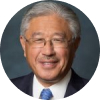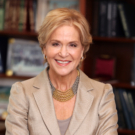Transforming Systems for Climate & Health
Transforming the systems that shape climate and health together.

About the Program
Climate change is not just an environmental crisis—it is a profound and escalating threat to human health. Rising temperatures, extreme weather events, and shifting disease patterns are straining health systems and disproportionately affecting the most vulnerable populations. Despite these urgent risks, health remains largely overlooked in climate policies and investments.
The NAM is leading the Transforming Systems for Climate & Health initiative, a global effort to place health at the center of climate action. The initiative aims to catalyze transformative systems change that simultaneously reduces emissions, builds climate resilience, and strengthens the foundations of human health and well-being.
To guide this work, NAM has convened the Commission on Reimagining Systems for a Healthier Climate Future, a group of global, multi-disciplinary leaders. In 2025, the Commission will host a series of information-gathering workshops to explore:
- What principles should guide a health-centered approach to systems transformation toward net-zero emissions?
- What are the structural levers that drive transformative change across sectors and systems?
- In what ways can systems transformation be pursued differently across geographic contexts while maintaining shared goals for health and climate resilience?
The insights gathered though these workshops will lay the foundation for the initiative’s consensus study in 2026, which will identify high-impact, scalable strategies with the greatest potential to address climate-related health threats and deliver transformative change.
Dive Deeper

Why Climate Action Must Anchor Health
A thriving society and economy depend on the health of its people, yet climate change is destabilizing the very systems that sustain human well-being. Rising air pollution, extreme heat, and disruptions to food and water security are not just environmental crises—they are direct threats to economic stability, workforce productivity, and community resilience. Too often, climate strategies operate in silos, missing the opportunity to integrate health into the decisions that shape our built environment, industries, and policies. Embedding health at the core of climate action delivers immediate, tangible benefits—cleaner air, safer communities, and stronger economies—while driving solutions that are more effective, sustainable, and scalable.
The initiative on Transforming Systems for Climate & Health aims to advance a bold, systems-level approach to bridging these silos and aligning climate action with health-driven outcomes. By positioning health as both a driver and a measure of success, it seeks to provide a unifying framework for decision-makers and regions to support the development and scaling of solutions that build a healthier, more resilient future for all.

Program Leadership

Victor J. Dzau, MD, is the President of the National Academy of Medicine (NAM), formerly the Institute of Medicine (IOM). In addition, he serves as Vice Chair of the National Research Council. Dr. Dzau is Chancellor Emeritus and James B. Duke Distinguished Professor of Medicine at Duke University and the past President and CEO of the Duke University Health System. Previously, Dr. Dzau was the Hersey Professor of Theory and Practice of Medicine and Chairman of Medicine at Harvard Medical School’s Brigham and Women’s Hospital, as well as Bloomfield Professor and Chairman of the Department of Medicine at Stanford University.
Dr. Dzau is an internationally acclaimed physician scientist and leader whose work has improved health and medicine in the United States and globally. His seminal work in cardiovascular medicine and genetics laid the foundation for the development of the class of lifesaving drugs known as ACE inhibitors, used globally to treat hypertension and heart failure. Dr. Dzau pioneered gene therapy for vascular disease and was the first to introduce DNA decoy molecules in humans in vivo. His pioneering research in cardiac regeneration led to the Paracrine Hypothesis of stem cell action and his recent strategy of direct cardiac reprogramming using microRNA. He maintains an active NIH-funded research laboratory.
Dr. Dzau is a leader in health and heath policy. At the NAM, he has led important initiatives such as Vital Directions for Health and Health Care, the Action Collaborative on Countering the US Opioid Epidemic, and the Action Collaborative on Clinician Well-Being and Resilience. Under his tenure, the NAM has advanced efforts to improve health equity and address racism throughout its programmatic activities, especially the Culture of Health Program. Most recently, the NAM launched a Grand Challenge in Climate Change and Human Health & Equity to reverse the negative effects of climate change on health and social equity by activating the entire biomedical community, communicating and educating the public about climate change and health, driving changes through research, innovation and policy, and leading bold action to decarbonize the health care sector.
As a global health leader, he helped design and launch the National Academies initiatives on Global Health Risk Framework; Global Health and Future Role of the US; Crossing the Global Quality Chasm and Human Genome Editing. The NAM Global Grand Challenge for Healthy Longevity represents his vision to inspire across disciplines and sectors to coalesce around a shared priority and audacious goal to advance health.
He has led the NAM’s response to COVID-19, which includes numerous committees, reports, consultations and communication on a range of issues including public health, vaccine allocation, health equity and mental health. He has worked tirelessly to engage with the global response to COVD-19 by providing leadership as a member of the Global Preparedness Monitoring Board, co-chair of the G20 Scientific Expert Panel on Global Health Security, Advisor to the G20 High Level Independent Panel on Financing and a principal of the ACT-Accelerator which includes COVAX, the global collaboration for accelerating the development, manufacture and equitable distribution of COVID-19 vaccines.
He is active in advising science and health in US and globally. He has served as a member of the Advisory Committee to the Director of the National Institutes of Health (NIH), chaired the NIH Cardiovascular Disease Advisory Committee and NHLBI Cardiovascular Progenitor Cell Biology Consortium. Currently, he chairs the Cardiovascular Progenitor Cell Translational Consortium. He is a member of the Health and Biomedical Sciences International Advisory Council of Singapore, as well as a board member of the Imperial College Health Partners, UK and the Gairdner Foundation. He chairs the International Scientific Advisory Committee of the Qatar Precision Medicine Institute, the Scientific Boards of the Peter Munk Cardiac Center, University of Toronto and Institute of Cardiovascular and Medical Sciences, University of Glasgow. He served on the Board of Health Governors of the World Economic Forum and chairs its Global Futures Council on Healthy Longevity.
Among his many honors and recognitions are the Max Delbreck Medal from Charite, Humboldt and Max Planck, Germany, the Distinguished Scientist Award from the American Heart Association, Ellis Island Medal of Honor, and the Henry Freisen International Prize. In 2019, he was named an Honorary Citizen of Singapore- the highest level of honor bestowed to a foreign citizen conferred by the President of Singapore. He has been elected to the National Academy of Medicine, the American Academy of Arts and Sciences, the European Academy of Sciences and Arts, UK Academy of Medical Sciences, the Japan Academy, Mexican Academy of Medicine, Chinese Academy of Engineering and Academia Sinica. He has received 16 honorary doctorates.

Andy Haines was Director (formerly Dean) of the London School of Hygiene & Tropical Medicine from 2001- October 2010, having been trained in family practice and epidemiology. He developed an interest in climate change and health in the 1990’s and was a member of the Intergovernmental Panel on Climate Change for the 2nd, 3rd and 5th assessment exercises. He chaired the Rockefeller /Lancet Commission on Planetary Health (2014-15) and the InterAcademy Partnership (140 science academies worldwide) working group on climate change and health. He is currently co-chairing the Lancet Pathfinder Commission on health in the zero-carbon economy. He was awarded the Tyler Prize for Environmental Achievement in 2022.

Judith Rodin is a pioneer, innovator, change-maker and global thought-leader. For over two decades Rodin led and transformed two global institutions: The Rockefeller Foundation and the University of Pennsylvania. A ground-breaking executive throughout her career, Dr. Rodin was the first woman named to lead an Ivy League Institution and was the first woman to serve as The Rockefeller Foundation’s president. A research psychologist by training, she was one of the pioneers of the behavioral medicine and health psychology movements. Dr. Rodin’s leadership ushered The Rockefeller Foundation into a new era of strategic philanthropy that emphasized partnerships with business, government, and the philanthropic community to address and solve for the complex challenges of the 21st century. Rodin championed two whole new fields that are now pervasive: resilience and impact investing. At Penn, Dr. Rodin presided over an unprecedented decade of growth and progress that transformed the institution, its campus, and the community, taking the university from sixteenth to fourth in U.S. News and World Report national rankings. The University also engineered a comprehensive, internationally acclaimed neighborhood revitalization program in West Philadelphia. Rodin has served as a member of the board for several leading corporations and many non-profits. She has authored more than 250 academic articles and chapters, and has written or co-written 15 books, including The Power of Impact Investing: Putting Markets to Work for Profit and Global Good and The Resilience Dividend: Being Strong in a World Where Things Go Wrong. Her most recent book, Making Money Moral: How a New Wave of Visionaries is Linking Purpose and Profit, was published in February 2021 by Wharton School Press.
NAM Staff




Sponsors
Have Questions?
Get in Touch
The NAM welcomes the sharing of evidence and resources to inform the work of the Commission on Reimagining Systems for a Healthier Climate Future. Please send any relevant information or materials to us using the button below.
